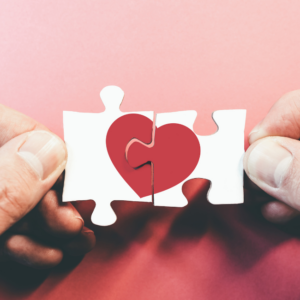Studies suggest that as many as 9% of men and 11% of women in the United States have experienced problems with their fertility, and this number seems to be increasing. As an increasing percentage of couples face problems with infertility, egg donation is a generous and impactful gift that can help individuals and couples struggling with infertility realize their dreams of becoming parents. Beyond the altruistic rewards, as an egg donor, you often gain valuable insights into your own reproductive health and future fertility. This blog post explores how the process of egg donation can provide you with a more complete understanding of your fertility.
The Screening and Testing Process
The journey of egg donation begins with an extensive screening and testing process. These tests and screenings are designed to ensure your health and the viability of your eggs. This rigorous evaluation includes several steps:
Initial Application and Interview: During the initial stages of your egg donation journey, you fill out a detailed application covering your medical history, lifestyle, and family health history. Following this, you participate in an interview to discuss the process and expectations.
Medical Examination: A thorough medical exam is also conducted to assess your overall health. This includes a pelvic exam, ultrasound, and blood tests to check your hormone levels and ovarian reserve.
Genetic Testing: Next, you undergo genetic testing to screen for hereditary conditions that could be passed on to the offspring. This testing helps in understanding any genetic predispositions that might affect fertility.
Psychological Evaluation: A psychological assessment ensures that you are mentally prepared for the process and understand the emotional implications of egg donation.
Infectious Disease Screening: Finally, blood tests are conducted to screen for infectious diseases like HIV, Hepatitis B and C, and other sexually transmitted infections. These test help ensure the safety of you and the egg recipient.
Insights You Gain From the Screening Process
The comprehensive nature of these screenings provide you with detailed information about your reproductive health. This is information that you might not otherwise have access to. Here’s what you can learn:
Ovarian Reserve: The evaluation of ovarian reserve involves measuring levels of hormones. These hormones include Anti-Müllerian Hormone (AMH), Follicle-Stimulating Hormone (FSH), and Estradiol. Your hormone levels give a clear picture of the quantity and quality of your remaining eggs, which is a crucial aspect of fertility.
Reproductive Anatomy: Through ultrasounds and pelvic exams, you get insights into the health of your reproductive organs. Any abnormalities that you might want to know about, such as cysts, fibroids, or structural issues, can be detected early.
Genetic Health: Genetic testing can reveal if you are a carrier of any genetic disorders. By understanding your genetic makeup, you can plan for future family-building and manage any potential health risks.
Overall Health: The comprehensive medical examination and blood tests provide you with information about your general health. This information can give you insight into underlying conditions that might affect your fertility or future pregnancies.
How Egg Donation Enhances Your Understanding of Your Personal Fertility
The detailed screening process not only ensures that you are healthy and your eggs are viable, but it also offers you a wealth of knowledge about your fertility status. Here are the specific ways in which egg donation helps you understand your fertility better:
Awareness of Fertility Potential: Learning about your ovarian reserve and hormonal balance can give you a clear understanding of your fertility potential. This can help in your family planning decisions.
Early Detection of Issues: Through medical and genetic evaluations, you can identify potential fertility issues early. This allows you to seek timely interventions if necessary.
Education on Reproductive Health: Through the process of egg donation, you learn about the importance of reproductive health and regular check-ups. This teaches you the importance of proactively managing your fertility.
Informed Family Planning: With insights into your genetic health and overall reproductive system, you can make informed decisions about when and how to start your own family.
Conclusion
Egg donation is a unique opportunity that brings joy to families in need. Additionally, this process also provides you with valuable insights into your own reproductive health. Through the rigorous screening and testing process, you can gain a pretty clear understanding of your own fertility. Much of what you learn during this journey can significantly benefit your future family planning. By participating in egg donation, you are empowered with knowledge. This knowledge helps you make informed decisions about your reproductive health and overall well-being.




